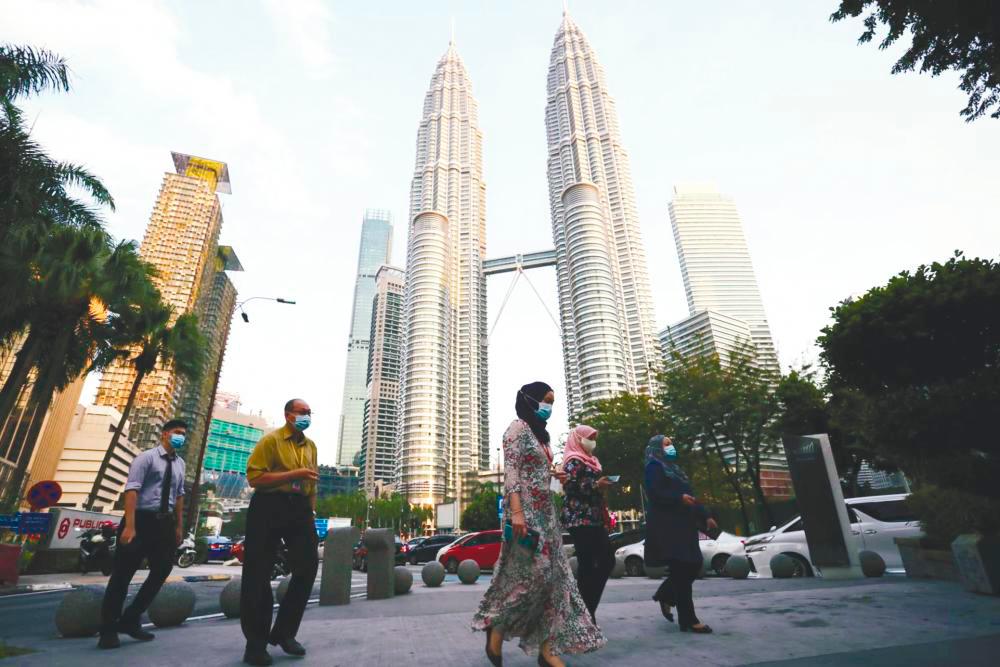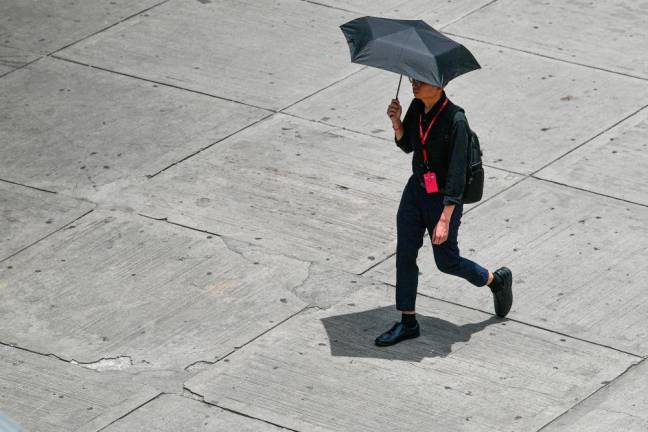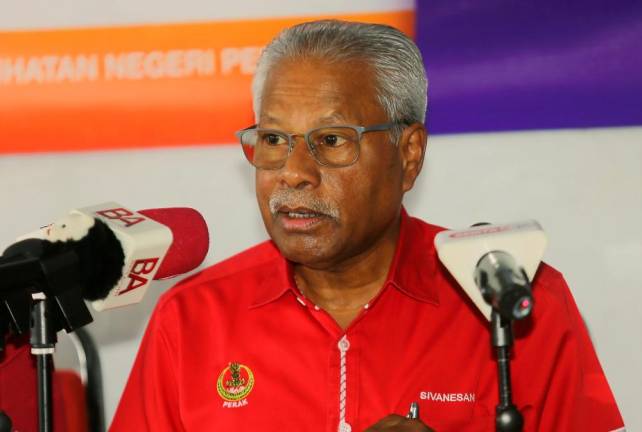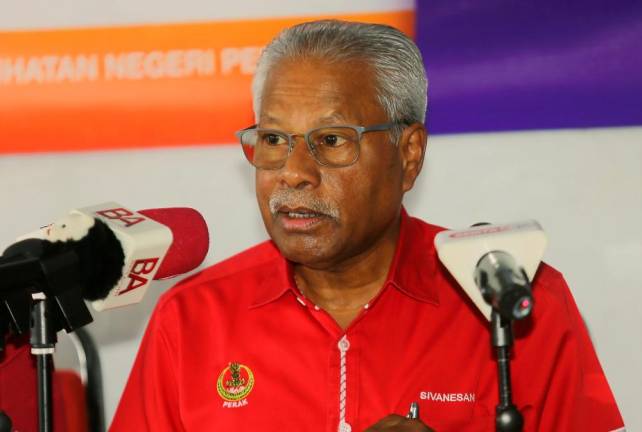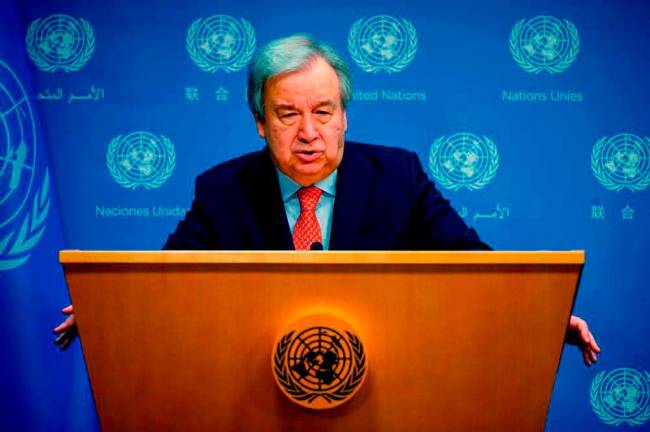TWO controversial statements on politics and religion made by the president of a political party early this month deserve scrutiny because they may reflect the thinking of a large segment of voters.
Are there significant flaws in the reasoning behind those statements that should raise questions whether political parties have sufficiently knowledgeable counsellors to debate issues within the ranks before pronouncements are made?
“There is nothing wrong with politicians delivering sermons or religious lectures” at the places of worship of one religion, the party president told reporters on March 4.
“We must realise” (in his religion), “politics and religion are inseparable”.
On politics, the president said two days later that the opposition had every right to formulate plans to topple the current government.
“Votes of no confidence, statutory declarations and even defections from among the government’s supporters. These are all normal processes in a democratic country.”
Let us first consider the link between politics and religion. If they are inseparable in one religion, it must be so too for every religion in any civilisation. For a characteristic to be fundamental, it must appear in all forms of that genre and not just one form of it. This principle is true of biological as well as social genres, such as religion.
At the dawn of civilisation, politics and religion were indeed born together as inseparable twins. But here is the context. Next time you visit a tribal village at the edge of a forest, throw your mind back to the primeval hunter-gatherer days when each society consisted of a tribe of 150-500 mostly related people. Each society was independent, and religion consisted of living in harmony with nature. Politics meant all families making a collective decision in governing the tribe.
When commercial agriculture developed, tribes merged into super tribes, then mega-tribes and finally a kingdom of one million people to start with. The emergence of civilisations was a seismic shift and charismatic leaders held kingdoms of vastly diverse ethnicities together by decreeing belief in a God of law, who punished with hellfire citizens who cheated on society and their fellowmen.
Rituals to strengthen community bonds were established. Crop-based civilisations favoured the offering of fruits to God, while livestock-based civilisations went for animal sacrifice. These rituals are still practised today. Think about it: Does God need our bananas and beef? These rituals were designed to hold a million or more people together as one unified society.
The key purpose of religion was to bind people together and serve to enforce cooperative ethical behaviour for everyone’s well-being.
Theocracy was the first type of governance in civilisation and theocracies ruled Europe, West Asia, India, China and pre-Columbian America. Often, there would be a supreme leader who headed both the government and religion.
Politics and religion were inseparable up until the Industrial Revolution, starting around 1750. Then human societies underwent another seismic shift with the invention of sophisticated machineries.
Populations jumped 10-fold. A separation of politics and religion became necessary because religious laws, being ancient and immutable, could not deal with the profound social changes wrought by the norm-changing Industrial Revolution.
Thus began the era of political parties entrusted with the responsibility to enact secular laws in parliament. Religious conservatives hate secularism and label it as opposed to religion. They are misguided. Secularism is non-religious but it is not opposed to religion. Secular laws are enacted to cope with the industrialised environments that no scripture of any religion could have envisioned.
There are no religious laws derived from scripture that are capable of regulating aviation services, atomic energy, electricity usage, petroleum mining, rDNA recombination, television broadcasting and a host of other innovations arising from industrialisation. Without secular laws, industrialised hi-tech societies will grind to a halt.
Nor are secular laws a class inferior to religious laws on moral issues. The law banning slavery is deeply moral and spiritual. Introduced by Abraham Lincoln, it is a secular law.
In contrast, religious laws in every part of the world allowed slavery. As slave labour was the growth engine for the world’s pre-industrial civilised economies, scriptures were quoted to maintain the practice. Anti-slavery enactment is the most outstanding example of one secular law being superior to religious codes.
It was a necessary development for politics and religion to become separated. Political parties were given the role of enacting secular laws to keep apace of technological or social innovations, while religion maintained its key purpose of acting as a social glue to enhance cooperative ethical behaviour for social order.
As it is the character of political parties to indulge in partisan politics, the outcome is divisiveness. The purpose of religion, on the other hand, is unitive. Hence, there is no room for politics in religion, and it is wrong for political campaign speeches to be made in houses of worship.
If politics and religion are still treated as inseparable, then all political parties must be granted the same right to talk in houses of worship. Chaos would ensue if every mosque, church, temple and gurdwara became a dais for opposing views to be aired by politicians seeking electoral support. Religion will drown in the mud of politics and become just as divisive.
How about the view that all members of the same religion should unite politically? You must ask: Why only all members of one religion?
In the face of incessant climate change threatening human survival, religion must step up its role as an
all-inclusive social glue, uniting the adherents of all religions as members of one global family.
All religions today are in the same boat heading towards the edge of a waterfall as witnessed by the fact that the quintessential term “carbon emission” is not mentioned in any scripture although excessive carbon emission by human beings is posing the biggest danger to life on earth.
Let us now examine the view that a government elected by a democratic process can be toppled by votes of no confidence, statutory declarations and defections from government ranks. Are these normal processes in a democratic country, as argued? The answer is “No”.
Whereas theocracy is rule by God, or more correctly rule by king and priest using God’s name, democracy is rule by the people (theos = God; demos = people). Theocracies collapsed because governments by divine right led to power abuses and oppression of the people.
Even without these weaknesses, theocracies are destined to collapse because their inputs are confined to one religion. Democracies, on the other hand, can tap international inputs in the drafting of legislation.
However, democracies may also collapse if the people’s need for stability is subverted by frequent changes of government.
As doyen political science lecturer A.C. Kapoor wrote in his Principles of Political Science: “Fluctuating governments bring inefficiency, corruption, nepotism and deterioration in the moral tone of the governors and the governed.”
The administration becomes “unresponsive and irresponsible” as there is perpetual agitation throughout the country “nourishing political factions and encouraging unnecessary restlessness”.
Kapoor further warned that too short a tenure for a government defeats the true purpose of representation by the elected MPs, and they become oblivious of their duties.
The writer champions interfaith harmony. Comments: letters@thesundaily.com




